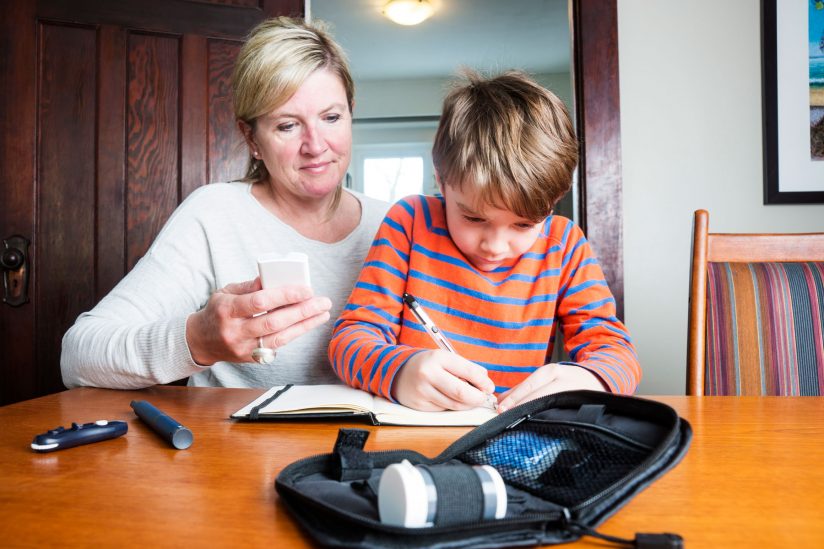An entrepreneur at heart, Chris has been building and writing in consumer life insurance and health for over 11 years. He's contributed to 1,000+ medical, health, financial and wellness articles and product reviews written in the last 11 years.In addition to Pharmacists.org, Chris and his Acme Health LLC Brand Team own and operate Diabetic.org, PregnancyResource.org, Multivitamin.org, and the USA Rx Pharmacy Discount Card powered by Pharmacists.org.Chris has a CFA (Chartered Financial Analyst) designation and is a proud member of the American Medical Writer’s Association (AMWA), the International Society for Medical Publication Professionals (ISMPP), the National Association of Science Writers (NASW), the Council of Science Editors, the Author’s Guild, and the Editorial Freelance Association (EFA).
Home » Going Back to School With Diabetes
Going Back to School With Diabetes

Chris Stocker

Chris Stocker


Chris Riley
To learn about Diabetes Life Solutions commitment to transparency and integrity, read our Editorial Disclosure
Last Updated on February 24, 2026
It is time to go back to school. Back to packing lunches, PTA meetings, and helping with homework. Going back to school with diabetes can lead to even more prepping and planning.
Going back to/starting school is stressful for parents of children diagnosed with diabetes. If your child is old enough to maintain their diabetes, this transition can be smooth. If your child is young, the idea of not being there to care for their child terrifies most parents. There are a lot of questions that parents have when sending their children off to school.
Will My Child Be Properly Cared For?
Normally teachers and nurses have dealt with diabetic children before and can help you through this process. Schedule a meeting with the teachers and nurses to discuss your concerns. Make sure they recognize the signs of hyper/hypoglycemia. Be honest with them and share your fears.
Communicating with the administration will eliminate the uncertainties parents have. You should provide the school with the appropriate medications for diabetes, forms, emergency contacts, and supplies they will need.
Who Should I Tell About My Child’s Diabetes?
Making sure that all staff members are aware of your child’s diabetes is important, this may include: teachers, coaches, bus drivers, nurses, and school counselors. It is important that everyone playing a role in the child’s life knows what to do in an emergency.
Aside from essential personnel, you should make sure your child is comfortable with a person knowing about their condition. Ask your child if there is anyone else that they would like to tell about their diabetes. They might like help telling their best friend or maybe they would like to tell a neighbor.

How Can I Help My Child Feel More Comfortable?
Going to school can be scary for all kids, but the added pressure of diabetes can make it worse. If your child is young or newly diagnosed, make sure they know the signs of hyper/ hypoglycemia, and how to treat them. Make sure they know where their medications are located and to always tell a teacher if there is an emergency.
A lot of kids are worried that their classmates will make fun of them for their diabetes. There are several ways that you can help your child feel more comfortable. Encourage them that there is nothing wrong with them and that millions of children are going through the same thing.
If your child thinks it would help, suggest to the teacher to have a diabetic specialist come speak to the class. Younger children don’t understand what diabetes is, which can make them afraid.
How Do I Ensure That My Child Is Receiving The Specialized Attention They Need?
Create a 504 Plan. A 504 Plan refers to Section 504 of the Rehabilitation Act and the Americans with Disabilities Act. This Act says that federally funded programs cannot exclude a person based on their disabilities.
A 504 plan should outline the special accommodations that your child will need. Your 504 Plan should include when your child needs to eat/have a snack, monitor blood sugar, go to the bathroom, etc. This will ensure that the staff knows how and when to assist your child. Give a copy of the plan to every teacher your kid has during the school year.
Can My Child Participate In Sports And Other School Exercises?
Yes, unless he/she has other special circumstances, they can participate in all physical activities. Make sure all coaches or supervising teachers are aware of your child’s needs and symptoms.
Can I Just Go To School With My Child?
No, as much as you would love to, you can’t go to school with your kid. Don’t worry, your child will be fine.
The first couple weeks of school might be difficult for your kid. Trying to adjust to the new routine can cause children to be more emotional than usual. Stay involved in your child’s life. When you are at the dinner table, ask how their day at was. Ask them if there is anything you can do to make it easier. Encourage them to become involved in sports, clubs, or make new friends.
This also might be a good time to review your child’s life insurance policy or get one if you do not currently have a policy. The reason is that life insurance for juvenile diabetics can be difficult to obtain as your child reaches adulthood. So starting a policy now can give them the advantage of having that policy in place to protect their family when they reach adulthood.
The goal is for your child to be able to live a “normal” carefree childhood. Communication and staying positive can work wonders with you and your child. The school year should be an exciting time for you and your child. Don’t let the worries of diabetes ruin it.

Chris Stocker
Owner and author of The Life of a Diabetic. He's been writing about Diabetes related topics for over 10 years, and has been featured in HealthLine, Diatribe, Diabetes Advocates and JDRF.
Find out how much life insurance with Diabetes Life Solutions costs
